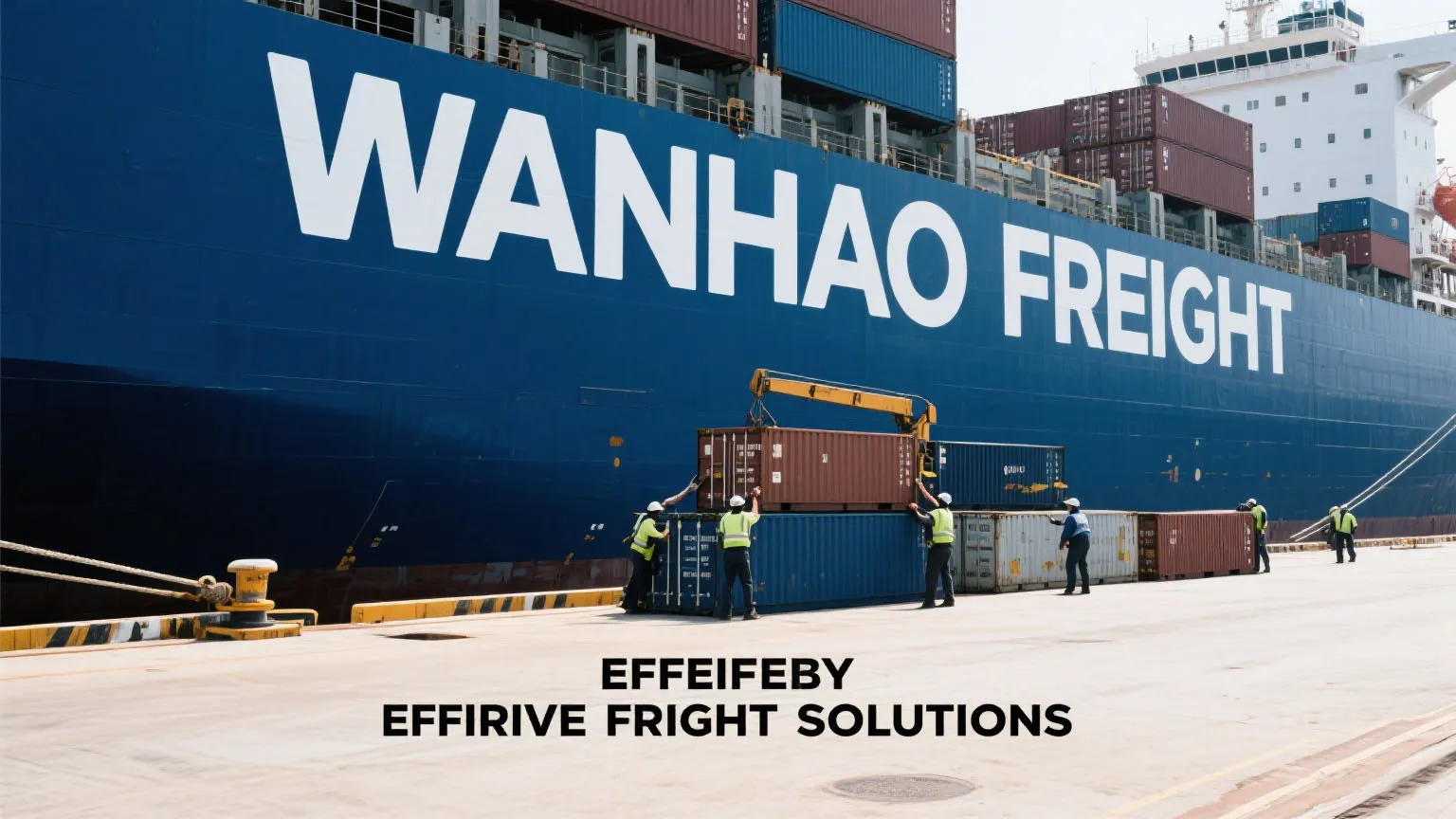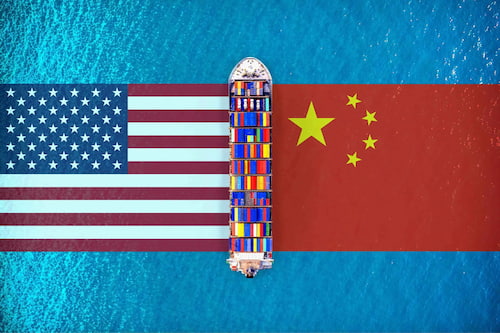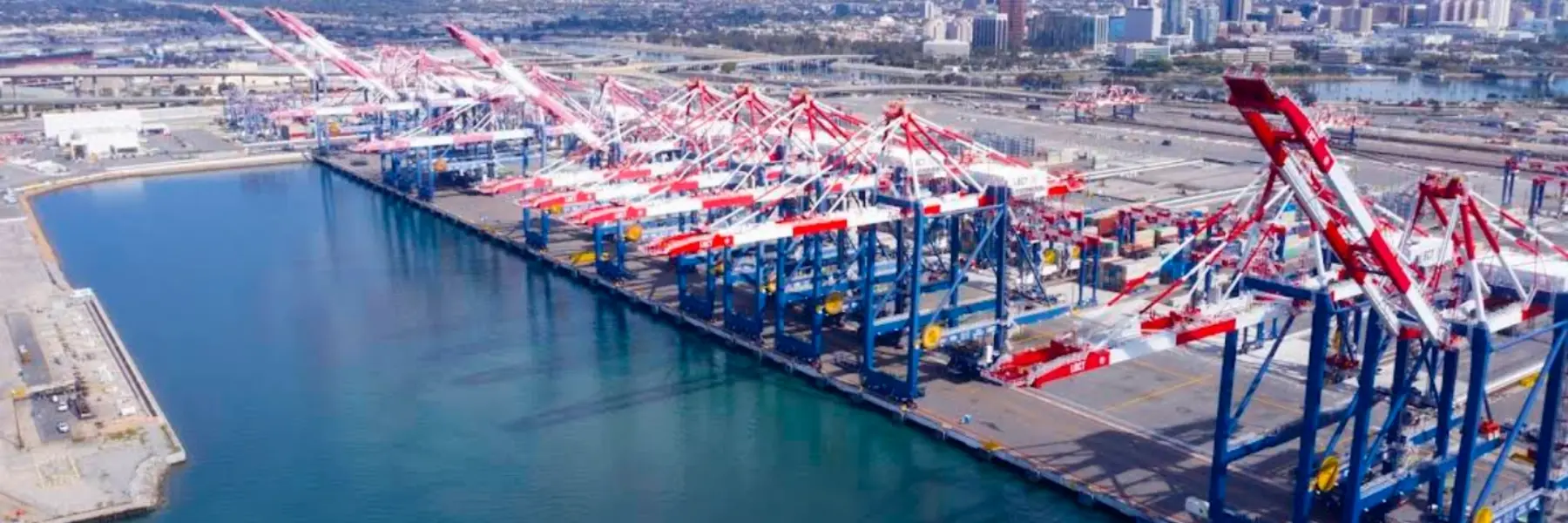
Shipping from China to Pittsburgh: A Comprehensive Logistics Guide
In the interconnected world of global commerce, shipping from China to Pittsburgh has emerged as a vital lifeline for businesses across various industries. Pittsburgh, a key economic hub in the U.S. Northeast, celebrated for its revitalized manufacturing sector, advanced technology firms, and proximity to major consumer markets, demands efficient and reliable logistics solutions for importing goods. Whether you’re bringing in industrial machinery, tech components, consumer electronics, or bulk raw materials, mastering the details of shipping from China to Pittsburgh is essential for staying competitive. This guide covers every critical aspect, from selecting the right shipping mode to navigating complex customs processes, with a focus on how WanHaoFreight can streamline your supply chain.
Choosing Between Sea Freight and Airfreight for Pittsburgh - Bound Shipments
When planning shipping from China to Pittsburgh, the choice between sea freight and airfreight depends on your cargo’s characteristics, budget, and delivery timeline. Both methods have unique benefits that cater to different business needs.
Sea Freight: The Economical Choice for Bulk and Non - Urgent Cargo
Sea freight remains the preferred option for businesses shipping large - volume, non - time - sensitive cargo to Pittsburgh. It offers significant cost savings compared to airfreight, making it ideal for items like heavy machinery, construction materials, bulk textiles, and large quantities of consumer goods. Within sea freight, two primary options are available: Ocean FCL (Full Container Load) and Ocean LCL (Less than Container Load).
Ocean FCL: This solution is perfect when your cargo fills an entire container (20ft or 40ft). For example, if you’re a Pittsburgh - based manufacturing company importing a full shipment of industrial motors from China, Ocean FCL is the way to go. With FCL, you have exclusive use of the container, minimizing the risk of cargo damage and reducing delays caused by sharing space with other shippers’ goods. Transit times from major international seaports in China—such as Shanghai, Shenzhen, and Ningbo—to U.S. ports that serve as gateways to Pittsburgh (like the Port of New York and New Jersey or the Port of Baltimore) typically range from 22 to 45 days. The cost for a 40 - foot FCL container from Shanghai to the Port of New York and New Jersey starts at approximately 1,600 to 3,200, depending on market conditions, fuel prices, and seasonal demand. As a trusted China Freight forwarder, WanHaoFreight leverages its long - standing relationships with top carriers like Maersk, COSCO, and MSC to secure competitive rates and reliable sailings for FCL shipments.
Ocean LCL: For smaller shipments that don’t fill a full container, Ocean LCL provides a cost - effective alternative. If you’re a small - to - medium - sized enterprise (SME) in Pittsburgh importing a few pallets of tech accessories or specialty goods from China, LCL allows you to share container space with other shippers, reducing upfront costs. LCL rates are calculated based on cargo volume, usually starting from 85 to 160 per cubic meter. However, LCL shipments often have longer transit times—around 30 to 55 days—due to the time required for cargo consolidation at the origin port and deconsolidation at the U.S. port. WanHaoFreight excels in managing LCL shipments, ensuring careful consolidation, real - time tracking, and timely delivery to Pittsburgh. They also handle all documentation related to LCL, such as the house bill of lading, to avoid delays.
After arriving at U.S. seaports, cargo bound for Pittsburgh requires inland transportation. This typically involves trucking or a combination of rail and trucking. For instance, from the Port of New York and New Jersey, trucking to Pittsburgh takes approximately 8 to 12 hours, while from the Port of Baltimore, it’s about 6 to 10 hours. Rail transport can be a more economical option for very large shipments, with transit times from the Port of New York and New Jersey to Pittsburgh ranging from 2 to 4 days. WanHaoFreight coordinates all inland transport, partnering with reliable local carriers to ensure seamless delivery from the port to your Pittsburgh warehouse or business location.
Airfreight: Speed for Time - Critical Shipments
When speed is a priority—such as for urgent orders, perishable goods, high - value electronics, or time - sensitive components—airfreight is the optimal choice for shipping from China to Pittsburgh. Airfreight drastically reduces transit times, ensuring your cargo reaches Pittsburgh quickly to meet tight deadlines.
Transit times from major Chinese airports (Shanghai Pudong, Shenzhen Bao'an, Guangzhou Baiyun) to Pittsburgh International Airport range from 3 to 8 days, including customs clearance. This rapid delivery is invaluable for businesses that can’t afford delays, such as those supplying components to Pittsburgh’s tech or automotive industries. However, airfreight comes with a higher price tag. Rates start at 3.20 to 10.50 per kilogram, depending on cargo weight, size, and special handling requirements (like temperature control for pharmaceuticals). Additional fees, including fuel surcharges (5% to 12% of the base rate), security fees (25 to 60 per shipment), and airport handling charges (40 to 90), may apply.
WanHaoFreight offers tailored airfreight services to Pittsburgh, including door - to - door delivery, cargo insurance, and expedited documentation processing. They work with leading airlines like China Eastern, Delta, and United to secure available cargo space, even during peak seasons. Whether you’re shipping a small batch of high - value medical equipment or an urgent order of tech parts, WanHaoFreight ensures your airfreight shipment arrives in Pittsburgh on time and in perfect condition.
Understanding Freight Costs for Shipping from China to Pittsburgh
To effectively budget for shipping from China to Pittsburgh, it’s essential to understand the various cost components associated with sea freight and airfreight, as well as additional fees that may apply.
Sea Freight Cost Breakdown
For Ocean FCL shipments, the base freight rate is just one part of the total cost. Other charges include:
4. Terminal Handling Charges (THC): These fees, charged by ports for loading and unloading containers, range from 110 to 320 per container, depending on the port and container size.
5. Documentation Fees: Covering the preparation of bills of lading, customs declarations, and other necessary paperwork, these fees typically cost 55 to 110 per shipment.
6. Container Deposit: A refundable fee (usually 500 to 1,000 per container) held by the carrier until the container is returned in good condition.
7. Special Handling Fees: For cargo requiring extra care—such as oversized items, hazardous materials, or refrigerated goods—fees can range from 200 to 800 or more, depending on the complexity of handling.
For Ocean LCL shipments, in addition to the per - cubic - meter rate, you’ll encounter:
8. Consolidation/Deconsolidation Fees: Charged for combining LCL cargo at the origin port and separating it at the U.S. port, these fees are typically 55 to 165 per shipment.
9. Destination Handling Fees: Covering port storage, cargo inspection, and transfer to inland carriers, these range from 90 to 200 per shipment.
Airfreight Cost Breakdown
Airfreight costs are primarily based on weight or volume (whichever is greater, known as “chargeable weight”). Beyond the base per - kilogram rate, common fees include:
10. Fuel Surcharges: Fluctuating with global oil prices, these surcharges usually account for 5% to 12% of the base airfreight cost.
11. Security Fees: Mandated by aviation authorities, these fees are 25 to 60 per airfreight shipment.
12. Airport Handling Charges: Covering cargo acceptance, storage, and loading onto the aircraft, these range from 40 to 90 per shipment.
13. Special Handling Fees: For fragile, oversized, or temperature - controlled cargo, fees can be 100 to 500 or more, depending on the cargo’s needs.
To get an accurate, personalized cost estimate for shipping from China to Pittsburgh, use WanHaoFreight’s Get A Quote service. Simply provide details like cargo type, weight, volume, origin (Chinese city/port), and desired delivery timeline, and WanHaoFreight will deliver a comprehensive quote within 24 hours. This transparency helps you avoid unexpected costs and plan your budget effectively.
Navigating Shipping Schedules for Pittsburgh - Bound Cargo
Reliable shipping schedules are crucial for maintaining a smooth supply chain when shipping from China to Pittsburgh. Understanding carrier schedules and booking in advance ensures your cargo arrives when you need it.
Sea Freight Schedules
Major carriers offer regular sailings from Chinese international seaports to U.S. ports serving Pittsburgh. For example:
14. From Shanghai Port to the Port of New York and New Jersey: Carriers like Maersk and COSCO offer weekly sailings, with departures every Monday and Thursday.
15. From Shenzhen Port to the Port of Baltimore: MSC and Hapag - Lloyd provide weekly sailings, departing every Tuesday and Friday.
Transit times vary based on the origin port and carrier. From Shanghai to the Port of New York and New Jersey, transit times average 22 to 30 days, while from Shenzhen to the Port of Baltimore, they range from 25 to 35 days. It’s recommended to book sea freight shipments 3 to 5 weeks in advance, especially during peak seasons (like August to October for holiday inventory or January to March for post - holiday restocks), to secure space on your preferred sailing. WanHaoFreight monitors carrier schedules in real time and can help you choose the most suitable sailing based on your delivery needs.
Airfreight Schedules
Airfreight offers more frequent options for shipping from China to Pittsburgh. Major airlines operate daily or multiple weekly flights from Chinese airports to Pittsburgh International Airport or nearby hubs (like Newark Liberty International Airport or John F. Kennedy International Airport, with connecting transport to Pittsburgh). For example:
16. China Eastern operates daily flights from Shanghai Pudong to Newark Liberty International Airport, with cargo connecting to Pittsburgh via truck or short - haul flight.
17. Delta offers five weekly flights from Guangzhou Baiyun to Detroit Metropolitan Wayne County Airport, with onward transport to Pittsburgh.
Transit times for airfreight are much shorter, but booking in advance is still important, especially during peak periods (like electronics trade shows or holiday rushes). WanHaoFreight can secure cargo space on the earliest available flights, ensuring your urgent shipments reach Pittsburgh on time.
Destination Port Customs Clearance Considerations for Pittsburgh
Clearing U.S. customs is a critical step in shipping from China to Pittsburgh. Navigating customs regulations correctly avoids delays, fines, and unexpected costs. Here’s what you need to know:
Essential Documentation
To clear customs, you’ll need to submit the following documents:
18. Commercial Invoice: A detailed document that includes the cargo’s description, quantity, value, HTS (Harmonized Tariff Schedule) code, and the names and addresses of the shipper and consignee. The invoice must be accurate and match the actual cargo to avoid customs scrutiny.
19. Packing List: An itemized list of all goods in the shipment, including weight, dimensions, and packaging type (e.g., boxes, pallets). This helps customs officials verify the cargo’s contents.
20. Bill of Lading (BOL) for Sea Freight or Air Waybill (AWB) for Airfreight: These are legal documents issued by the carrier that serve as a receipt for the cargo and a contract for transportation. The BOL/AWB includes details like the origin, destination, and description of the cargo.
21. Importer Security Filing (ISF): For sea freight shipments, the ISF (also known as “10+2”) must be submitted to U.S. Customs and Border Protection (CBP) at least 24 hours before the cargo is loaded onto the vessel in China. The ISF includes information about the importer, seller, buyer, and cargo details.
22. Certificate of Origin (CO): Required for certain products to qualify for preferential duty rates under trade agreements (like the USMCA). The CO verifies the country where the goods were manufactured.
WanHaoFreight assists with preparing and submitting all customs documentation, ensuring accuracy and compliance with CBP regulations. Their team of experts is well - versed in the specific documentation requirements for different cargo types, from industrial equipment to consumer goods.
Duties and Taxes
U.S. customs duties are imposed on most goods imported from China, with rates varying based on the product’s HTS code. For example:
23. Industrial machinery may have a duty rate of 2.5% to 5%.
24. Consumer electronics (like smartphones or laptops) often have a duty rate of 0% to 3%.
25. Textiles and apparel can have duty rates ranging from 5% to 15%, depending on the fabric and product type.
In addition to duties, a Merchandise Processing Fee (MPF) is charged on most imports. The MPF is typically 0.3464% of the cargo’s declared value, with a minimum fee of 27.75 and a maximum fee of 538.40 per shipment.
WanHaoFreight helps you calculate the estimated duties and taxes for your shipment, using the correct HTS codes. They also provide guidance on duty - saving strategies, such as utilizing free trade zones or applying for duty drawbacks (refunds for goods that are exported after importation).
Customs Compliance and Potential Challenges
To avoid customs delays or penalties, it’s crucial to comply with CBP regulations. Common compliance issues include:
26. Inaccurate Documentation: Errors in the commercial invoice (like incorrect values or HTS codes) or missing documents can lead to customs holds. WanHaoFreight reviews all documentation thoroughly to prevent these issues.
27. Restricted or Prohibited Goods: Certain items (like weapons, illegal drugs, or endangered species) are prohibited from importation, while others (like pharmaceuticals, food products, or electronics) require special permits or certifications. WanHaoFreight advises on restricted goods and helps obtain necessary permits.
28. Cargo Inspections: CBP may randomly select shipments for inspection, which can delay delivery by 1 to 3 days. If a shipment is selected for inspection, WanHaoFreight coordinates with CBP to ensure the process is completed as quickly as possible.
Why WanHaoFreight Is the Ideal Partner for Shipping from China to Pittsburgh
When it comes to shipping from China to Pittsburgh, WanHaoFreight stands out as a reliable, customer - focused freight forwarder. Their comprehensive services, industry expertise, and commitment to transparency make them the perfect partner for businesses of all sizes.
Wide Range of Services
WanHaoFreight offers a full suite of logistics services tailored to shipping from China to Pittsburgh, including:
29. Ocean FCL and LCL Shipping: Whether you need a full container or shared space, WanHaoFreight provides flexible sea freight solutions with competitive rates.
30. Airfreight Services: For time - critical shipments, they offer expedited airfreight with door - to - door delivery and real - time tracking.
31. Customs Clearance: Their team of customs experts handles all documentation and compliance, ensuring smooth clearance at U.S. ports.
32. Inland Transportation: They coordinate trucking or rail transport from U.S. seaports/airports to your Pittsburgh location, ensuring seamless delivery.
33. Cargo Insurance: To protect your goods from loss or damage during transit, WanHaoFreight offers comprehensive cargo insurance coverage, with options to suit your needs.
34. Warehousing and Distribution: For businesses that need temporary storage, they provide warehousing services in China (for pre - shipment storage) and the U.S. (for post - clearance distribution to Pittsburgh and surrounding areas).
Industry Expertise and Local Knowledge
With years of experience in shipping from China to the U.S.—specifically to industrial hubs like Pittsburgh—WanHaoFreight has in - depth knowledge of the logistics landscape. They understand the unique needs of Pittsburgh’s industries, from manufacturing to tech, and can tailor solutions to meet those needs. Their team is familiar with U.S. customs regulations, carrier schedules, and inland transport routes, allowing them to anticipate and resolve potential challenges before they arise.
Transparent Pricing and No Hidden Fees
WanHaoFreight believes in transparency when it comes to pricing. Their Get A Quote service provides a detailed breakdown of all costs, including freight charges, handling fees, duties, and taxes. There are no hidden fees—you’ll know exactly what you’re paying upfront, making it easier to budget for your shipping needs. They also offer competitive rates, thanks to their strong relationships with carriers and ability to leverage economies of scale.
24/7 Customer Support and Real - Time Tracking
Shipping from China to Pittsburgh can involve unexpected issues, which is why WanHaoFreight offers 24/7 customer support. Their English - speaking team is available around the clock to answer your questions, provide updates on your shipment’s status, and resolve any problems that may arise. Additionally, they offer real - time tracking for all shipments, allowing you to monitor your cargo’s journey from China to Pittsburgh via their online portal or mobile app. You’ll receive notifications at every key stage—from departure from the Chinese port to delivery in Pittsburgh—giving you peace of mind.
Step - by - Step Process for Shipping from China to Pittsburgh with WanHaoFreight
Working with WanHaoFreight for shipping from China to Pittsburgh is a straightforward, stress - free process. Here’s a step - by - step breakdown:
Step 1: Request a Quote
Visit WanHaoFreight’s website and fill out the Get A Quote form. Provide details such as:
35. Cargo type (e.g., industrial machinery, electronics, textiles)
 Easy Shipping From Global, Save Cost
Easy Shipping From Global, Save Cost














